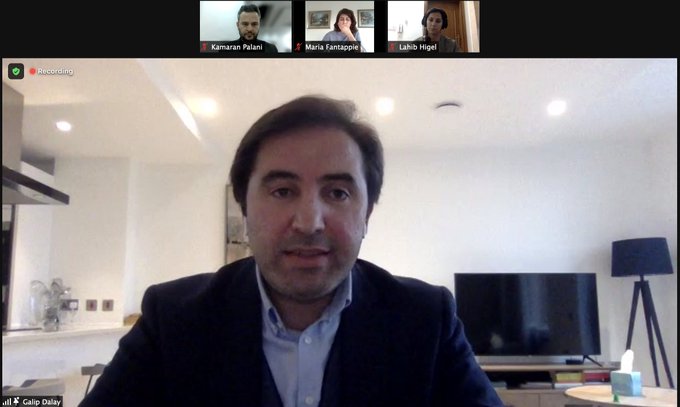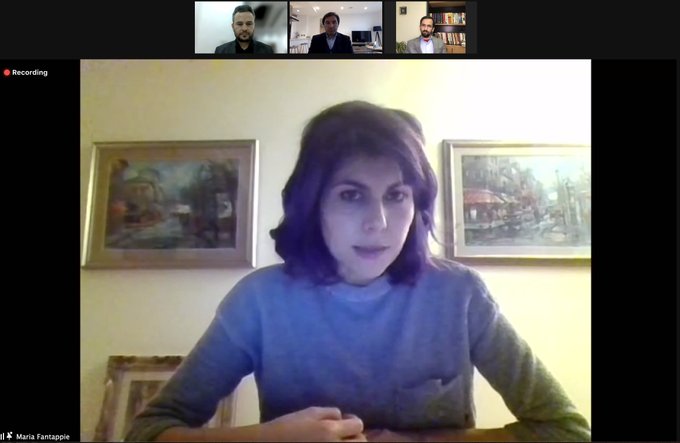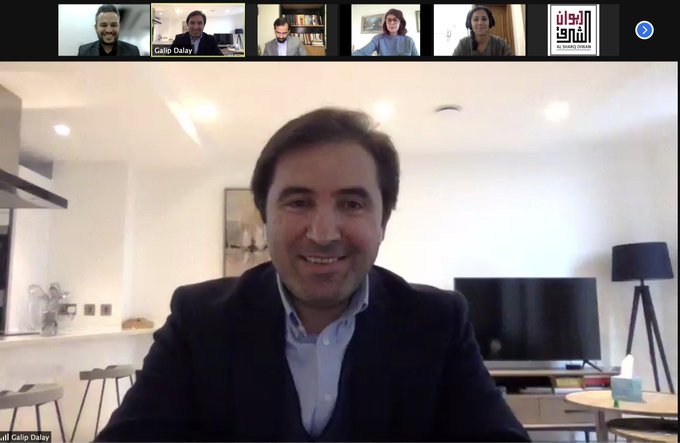Please read Kat's "Kat's Korner: No, Diana Ross, Thank You" about Diana Ross' new album THANK YOU. TV Diana Ross is a legend.
I am old. Old as dirt. I was just starting college when President John F. Kennedy was assassinated. That was 1963 and it was a very dark period. 1963 could not end quickly enough. When 1964 came around, we had the Beatles and we had the Supremes. The two groups dominated radio. And the Supremes dominated TV as well. The Beatles did when they were in the country but they were from England. The Supremes were from Detroit. They dominated TV which, back then, featured a lot of music. There were music programs. There were variety programs. There were talk shows. All required musical acts.
And Diana Ross, the lead of the Supremes, was magnetic in front of the camera. As a result, she broke down numerous barriers that had prevented Black artists from being featured on television. Berry Gordy, head of the label MOTOWN, saw the Supremes as trailblazers and the group became night club entertainers and Vegas entertainers. Diana was the star. She would do a special with Lucille Ball and Dinah Shore. She would host TV programs. As more opportunities were created for all people of color by Diana's high TV visibility, there would be those who followed down the trail blazed by her who would send her up or mock her -- such as Dionne Warwick did when she finally got a TV special.
Diana could sing and dance. With LADY SINGS THE BLUES, the world would learn that she could also act. And she was nominated for an Academy Award.
Diana broke down doors.
She also sang some of the best pop songs of the 20th century -- including?
"Stop In The Name Of Love," "Ain't No Mountain High Enough," "Do You Know Where You're Going To," "Baby Love," "I Hear A Symphony," "Touch Me In The Morning," "Swept Away," "Missing You," "Upside Down," "If We Hold On Together," "Pieces of Ice," "So Close," "Surrender," "Reflections," "All Of You," ''Where Did Our Love Go," "Why Do Fools Fall In Love," "Dirty Looks," "Reach Out And Touch Somebody's Hand," "Muscles," "Telephone," "I'm Coming Out," "The Boss," "Back In My Arms Again," "No Matter What Sign You Are," "Endless Love," "Chain Reaction," "Remember Me," "Love Child," "Take Me Higher," "Mirror, Mirror," "Come See About Me," "My World Is Empty Without You," "It's My Turn," "You Can't Hurry Love," "You Keep Me Hanging On," "Last Time I Saw Him," "My Mistake Was To Love You," "One Love In My Lifetime," ""It's My House," "Forever Came Today," "Love Is Here And Now You're Gone," "Getting Ready For Love," "Workin' Overtime," "When You Tell Me That You Love Me," "Take Me Higher," "The Happening," "When The Lovelight Starts Shining Through His Eyes," "Love Is Like An Itching In My Heart," "In And Out Of Love," "I'm Livin' In Shame," "The Composer" . . .
Look at all those songs and there are so many more that she sang lead on that charted.
She is a trail blazer and a legend.
And THANK YOU is an amazing album. I spent the day listening to it.
I highly recommend you stream it as well. I think you will love it.
My top five tracks from the new album?
1) "In Your Heart"
2) "If The World Just Danced"
3) "Count On Me"
4) "The Answer's Always Love"
5) "Thank You"
This is C.I.'s ""Iraq snapsot:"
Go out and take somebody by the hand
Put on your shoes and find out where you stand
Go take the lead and teach the world to dance
While life is busy making other plans
Jump off the edge and find out where you land
Go take the lead and teach the world to dance
So much better if the world just danced (we'd be better)
So much better if the world just danced (we'd be better)
Yeah, we'd be better if the world just danced (we'd be better)
Several big stories came out of Iraq’s sixth election since the 2003 US-led invasion. The first is low voter turnout which officially at 36 per cent of eligible voters is the lowest recorded in the country’s post-2003 electoral history. is the lowest recorded in the country’s post-2003 electoral history. With many Iraqis disillusioned with a political system which entrenches a corrupt political elite at their expense, this was expected, reflecting a trajectory of fewer Iraqis voting in each election.
More surprising is the relative success of Muqtada al-Sadr’s movement, which increased its seat tally from 54 in 2018 to 73 according to preliminary results while its main rival from the previous election Fateh – which represents the Popular Mobilization Forces – saw a decrease from 48 to only 16.
This result suggests Sadrists have increased in popularity while Fateh’s support has declined, but the vote total reveals a different story. While the Sadrists outperformed their rival in seat count, the two sides received a similar number of votes. In fact, according to preliminary numbers, Fateh and allies received more votes than the Sadrists but secured less seats, with Fateh receiving an estimated 670,000 votes while the Sadrists received 650,000.
This discrepancy highlights a key aspect of the new 2019 electoral law. As a recent Chatham House Iraq Initiative paper highlights, the newly adopted single non-transferable vote (SNTV) – a first-past-the-post (FPTP) system conducted within multi-seat constituencies – was intended to create a more transparent electoral process by removing the need for complex seat allocation algorithms and forging a closer link between voters and the elected.
Four years ago, the stream running through Iraq’s al-Hamra village dried up. Now, “all the trees have died”, said Abdullah Kamel who used to farm citrus fruit in the village in Saladin governorate north of Baghdad.
The farmers subsequently tried digging wells but found the groundwater was too salty and not suitable for farming. “It killed the trees and all our crops,” said Kamel.
Pulling a pomegranate from a nearby tree, he cracked it open on the dusty earth. Pale, crumbly seeds fell out. “The seeds are not edible,” he said.
The lands around al-Hamra, which used to be fields and orchards, have become like a desert within the space of a few years, said Kamel, with the streambed reduced to a dry ditch.
AUDIE CORNISH, HOST:
In Iraq, a prolonged drought has dried up lakes and brought rivers to such low levels that the Iraqi government says the country can farm just about half the land it normally would. The United Nations Environmental Program says Iraq is the fifth-most vulnerable country in the world to the effects of climate change. NPR's Ruth Sherlock traveled to a rural province there to hear how farming communities are surviving.
RUTH SHERLOCK, BYLINE: In Iraq's Diyala province, an hour northeast of the capital, Baghdad, much of the farmland looks abandoned.
(SOUNDBITE OF FOOTSTEPS CRUNCHING GRASS)
SHERLOCK: We walk over dry grass to meet a group of farmers that stand beside a cultivated patch of ground near a home-dug well.
HAMEED ALI MATAR: (Speaking Arabic).
SHERLOCK: Before, this land was known as the food basket of Baghdad. Farmer Hameed Ali Matar says now it's like a desert. I ask him what he would normally grow at this time of year.
MATAR: (Speaking Arabic).
SHERLOCK: NPR's translator, Awadh Altae, interprets.
MATAR: (Through interpreter) Normally, in the previous years when you came here, you can see it's all green - different kinds of corn and cucumbers - everything is green here. Well, this year is totally different.
SHERLOCK: He says what he grows now isn't even enough to feed his family of 10.
MATAR: (Through interpreter) We never buy anything. We have everything, like milk, yogurt, bread. But now, we buy 90%.
SHERLOCK: Matar is one of thousands of Iraqi farmers struggling to cope in a prolonged drought. There's been less rainfall for several years now. But this year, they say, is the worst they can remember. In a call with NPR, Hamid al-Nayif, the spokesman for the Ministry of Agriculture, lays out the scale of the problem.
HAMID AL-NAYIF: (Speaking Arabic).
SHERLOCK: He says, last year, the country cultivated 16 million dunams - or 160,000 hectares - of land. This year, they expect to grow on only a third of that land, maybe half if there's rain.
AL-NAYIF: (Speaking Arabic).
SHERLOCK: The lack of rainfall is the big problem. It's led Turkey and Iran to draw more from the Tigris and Euphrates rivers, and that means there's less water when these rivers flow into Iraq. There are local reasons for the water shortages, too, like inefficient irrigation systems and cracked pipes. But the Agriculture Ministry and climate experts working with them all tell NPR, climate change is exacerbating the crisis, with Iraq experiencing longer, drier and hotter summers and less annual rainfall. In Diyala province, in mid-October, the temperature is still almost a hundred degrees Fahrenheit.
We're here on what's a relatively cool day in Iraq, but it is still so hot. The air is thick with the heat. The sun is beating down. The air is dusty. Farmers say this is the first time they can remember that the lake that they rely on to water these fields is dry.
If you tap the ground, it's hard as rocks.
“Over the past 40 years, Iraq has been swept by wars and conflicts so it is classified as one of the most vulnerable nations in the world because of climate change,” Salih said. “Desertification affects 39% of our country and 54% of our agricultural lands are degraded because of salination caused by reducing water flow of the Tigris and Euphrates. Seven million Iraqis have already been affected by drought, climate change and the risk of displacement.”
The president’s virtual remarks come after he canceled his trip to Glasgow last minute. An informed source said the president's decision to stay in Iraq is a result of the tensions and ongoing negotiations to form a new government following last month's elections.
Flying over southern Iraq at night, the sky burns orange. Heaven and earth are illuminated by dozens of flaming towers in the oilfields scattered across the desert. The towers – known as flare stacks – burn off gases released during the production of crude oil, the black gold that provides more than 90 per cent of the Iraqi state’s revenues.
Iraq is the world’s second-worst offender when it comes to gas flaring, according to a recent World Bank report, after Russia. Every year, the country’s flare stacks emit billions of cubic metres of carbon dioxide, polluting the local environment and making life miserable for people who live and work near the oilfields.
The scale of the gas flaring falls in line with Iraq’s significant crude oil output. The country is the second-largest producer in the Opec group, pumping 4.34 million barrels a day, according to an independent analysis by Iraq Oil Report.
For decades Iraq has relied on oil to fund a bloated public sector at the expense of economic diversification. But as Iraq’s delegation, headed by President Barham Salih, arrives in Glasgow for Cop26, the country faces enormous challenges in combating the effects of climate change. A combination of years of conflict, poor governance and a lack of awareness leaves it ill-equipped to implement the needed reform. A rapidly growing population – the number of Iraqis is expected to double to 80 million by 2050 – adds even more pressure.
“I can count on one hand the number of leaders that are even aware of the urgency of the situation,” said Azzam Alwash, a member of Iraq’s Cop26 delegation and founder of Nature Iraq, a non-governmental organisation. “That is how bad the situation is, politically speaking.”
Gas flaring is just one factor contributing to the climate crisis. A crippled electricity grid forces Iraqis to rely on power generators that belch diesel fumes into the air. Low rainfall and damming on rivers upstream in Turkey and Iran have caused water levels to plummet. Plastic and sewage fill waterways because waste management systems don’t work. This year, there have been widespread crop failures, drought-induced migration and an increasing sense of panic among people who rely on the land to survive.
“We see more migration towards the cities that are already struggling with poor water and power infrastructure,” said Maha Yassin, a researcher at the Planetary Security Initiative of the Netherlands-based Clingendael Institute. “This is creating social tensions, and maybe more internal conflicts.”
Iraq is making some efforts to mitigate the effects of the climate crisis. The country has pledged to reduce CO2 emissions by 2 per cent in the public sector and 15 per cent in the private sector by 2030. The pledge is made with a condition, though – that there is “stability and financial support”, said Alwash. Despite the territorial defeat of the Islamic State (IS), security in Iraq is still unstable: there are frequent deadly attacks by IS insurgents and armed disputes between tribes.




